What is AI omnichannel customer service?
AI omnichannel customer service is a unified and integrated approach to managing customer interactions seamlessly across all communication channels. It represents the highest standard of customer care in today’s demanding business environment.
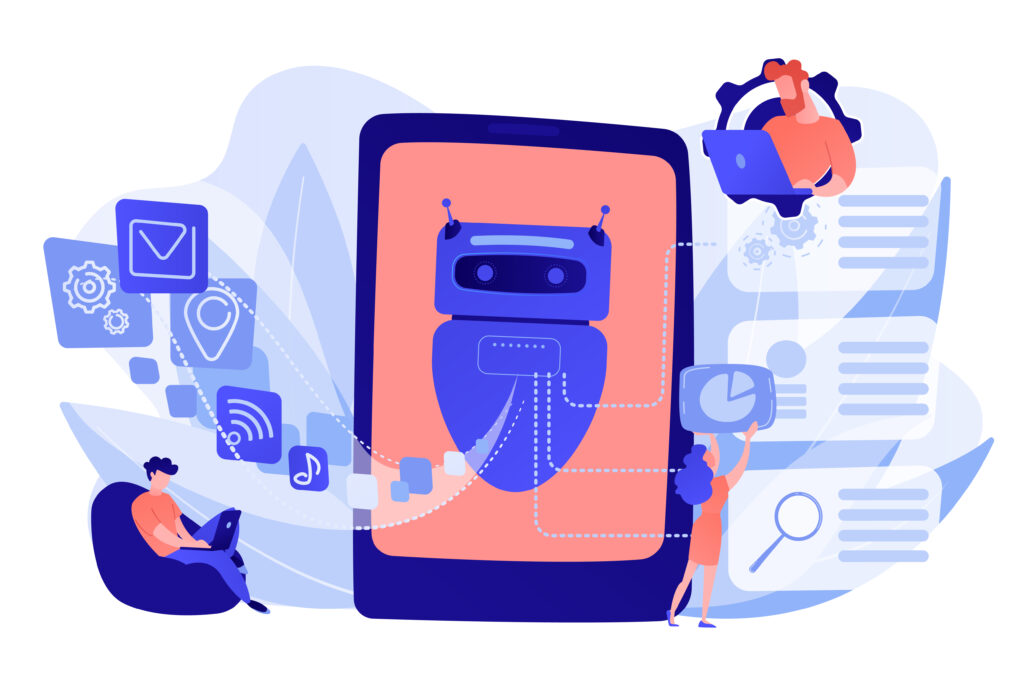
Now, how can you ensure a consistent experience across different platforms? How do you make it possible for a customer to switch from one channel to another without losing the context of their conversation?
There are two primary approaches.
The first relies entirely on human effort. Here, systems are interconnected to allow customers to transition between channels smoothly. However, behind the scenes, support agents are constantly working to maintain the system’s efficiency, accuracy, and responsiveness around the clock.
The second approach leverages artificial intelligence. An AI-powered omnichannel system overcomes the scalability limitations of the human-driven model by acting as a virtual support agent. It handles inquiries via chat, email, and phone while preserving the context of previous interactions. While the human-powered method is functional, an AI solution streamlines the process and delivers results with efficiency.
What is Omnichannel Conversational AI?
Omnichannel Conversational AI is an advanced technology that integrates artificial intelligence, automation, and machine learning to streamline and elevate customer interactions across multiple platforms. Its standout capability lies in unifying communication across channels, ensuring a seamless and connected experience for customers.
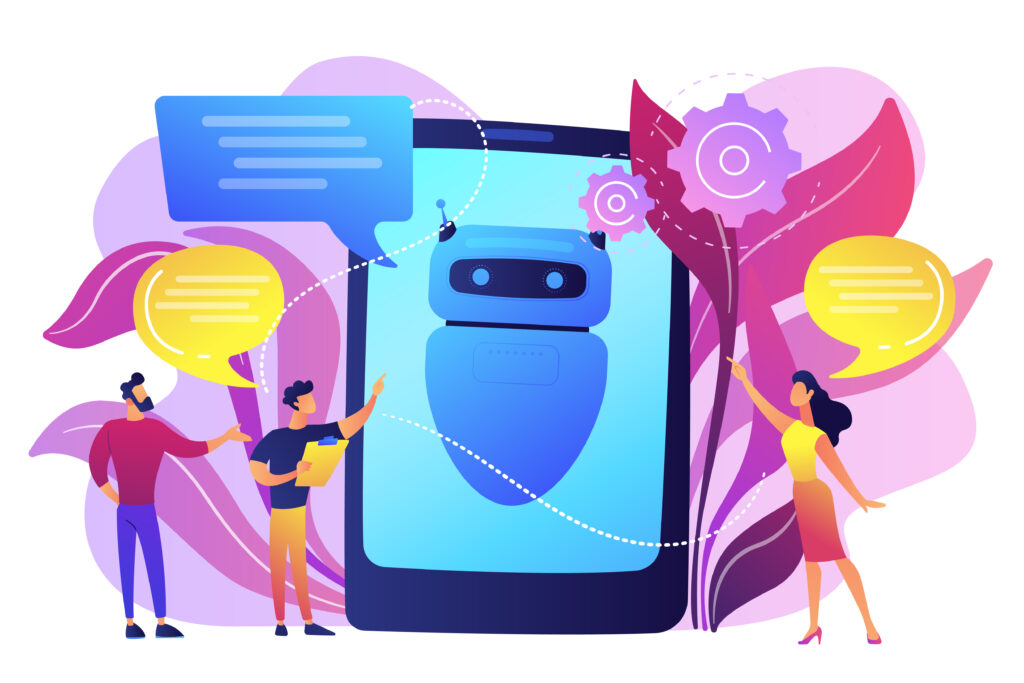
In traditional customer service, interactions are often fragmented, requiring customers to repeat information when moving between different touchpoints. Omnichannel AI eliminates this issue by maintaining a consistent conversation thread across platforms like email, social media, and phone calls, delivering a cohesive and uninterrupted customer journey.
How to Implement AI Omnichannel Customer Service
Implementing AI omnichannel customer service may seem complex at first. Where do you begin? What tools are necessary? What kind of upfront investment will it require? Here’s a simplified guide to help you get started and address these concerns.
Step 1: Build Your Technology Stack
To implement AI-powered omnichannel customer service, you’ll need two key types of tools:
- AI-Powered Tools: These handle support tasks using artificial intelligence.
- Data Storage Tools: These store and manage customer data, along with product and process information.
Key Component: AI Agent
The AI agent is the cornerstone of your technology stack for two reasons:
- It’s the interface customers engage with directly.
- It provides the AI-driven functionality to automate omnichannel workflows.
Look for an agile and intuitive AI agent capable of automating responses across all channels, including email, messaging, and voice.
One example is Ada’s AI Agent, a fully generative, omnichannel platform. Unlike hybrid tools that blend traditional workflows with generative AI, Ada’s solution stands out for its ability to produce natural, human-like interactions while executing pre-scripted workflows.
Benefits of an AI Agent:
- Enhanced Customer Experience: The AI agent ensures smooth, hyper-personalized interactions by resolving customer queries quickly and effectively.
- Increased Team Efficiency: By handling the majority of customer inquiries autonomously, the AI agent frees up your support team to focus on strategic initiatives or skill development.
With the right tools and strategy, implementing AI omnichannel customer service becomes a manageable process that delivers scalable, 24/7 support and improves both customer satisfaction and team productivity.
CRM and Supporting Tools for AI Omnichannel Customer Service

Customer Relationship Management (CRM)
The CRM serves as the central repository for all customer data. When a customer transitions to a different channel, support representatives can use the CRM to access their interaction history and preferences, ensuring they have the context needed to provide excellent service.
AI agents can also leverage this data to personalize interactions. For instance, if a customer on your eCommerce website asks for shopping suggestions, the AI agent can analyze their past purchases. Suppose the customer recently bought a sweatshirt — the AI could recommend complementary items like sweatpants or slippers, enhancing the shopping experience through tailored suggestions.
Additional Software Tools
Other systems can work alongside the AI agent to optimize the omnichannel experience:
- Inventory Management Software: The AI agent can use this to handle “Where Is My Order” (WISMO) queries or make order modifications.
- Invoicing Software: It can retrieve and share invoice copies with customers upon request.
The specific tools required will depend on your business model and operational workflows, but integrating complementary systems ensures a smoother, more efficient customer service process.
Step 2: Prepare the Foundation
With your tech stack in place, the next step is to integrate these tools and establish a cohesive workflow. The goal is to connect all your customer service software so that information flows seamlessly between systems while maintaining strong data security.
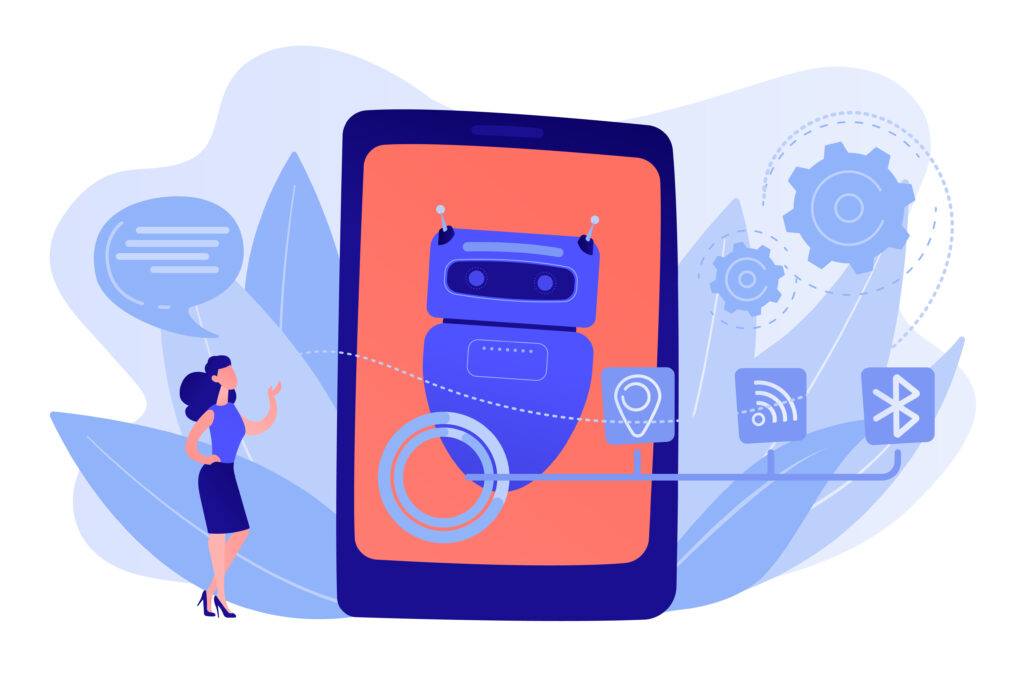
Importance of Integrations
Most software solutions come with pre-built integrations. However, if one or more tools in your stack lack ready-made options, you can use APIs to connect them. Here’s why these integrations matter:
- Automation of Processes:
Integrations allow your AI agent to handle tasks independently. For instance, if a customer wants to update their delivery address and contacts support via chat, the AI agent can directly modify the address by communicating with your order management system, eliminating the need for manual intervention.
- Personalization Through Data Access:
To deliver tailored responses, the AI agent requires access to customer data, such as order history, previous interactions, and customer segments. This data empowers the AI to provide more relevant and meaningful support.
Establishing Workflows
Once your systems are integrated, create workflows to ensure smooth operations. For example, if a customer requests an invoice update, the AI agent should know how to retrieve the necessary information from your invoicing software and make the requested changes seamlessly.
By integrating your tools and defining workflows, you can maximize the efficiency and effectiveness of your AI-powered omnichannel customer service system.
Step 3: Develop a Routing Strategy
To create a seamless customer service experience, it’s essential to understand how your support channels interact and determine the best way to utilize them for different situations.
Channel Coordination
A well-designed routing strategy ensures that channels work together efficiently. For example, if a customer initiates a conversation on WhatsApp but their query requires assistance from a technical expert, the AI agent should be programmed to either schedule a callback or transfer the query to your call center, where a live agent can handle it.
Respecting Customer Preferences
While guiding customers toward the most effective channel, avoid forcing them into options they may not prefer. Requiring someone to switch from chat to a phone call or write a detailed email when they want to stick with their current channel can create frustration. Instead, suggest the optimal support channel for their query while allowing them the flexibility to continue using their preferred method of communication.
A thoughtful routing strategy ensures both efficiency and customer satisfaction by aligning the support process with customer needs and preferences.
Step 4: Develop Self-Service Options
While not considered traditional support channels, self-service options are a crucial component of modern customer support. In fact, surveys indicate that 67% of customers prefer self-service over interacting with a representative. These tools empower customers to independently find solutions while also serving as valuable resources for AI agents.
The Role of a Knowledge Base
A knowledge base functions as a centralized repository for information about your products, services, processes, features, and policies—essentially everything a customer might need to know. Similar to how a CRM stores customer data, the knowledge base acts as the go-to source for product-related information.
For example, when a customer asks the AI agent how to request an account statement, the agent can search the knowledge base for the relevant information and provide an accurate response. This dual functionality not only helps customers self-serve but also reduces the workload on your support team.
What Are AI Agents in Customer Support?
AI agents are advanced systems designed to engage with customers, understand their inquiries, and resolve issues autonomously or collaboratively with human agents. These systems are equipped with key capabilities, including:
- Natural Language Understanding (NLU): To comprehend customer queries, even if they are phrased casually or ambiguously.
- Sentiment Analysis: To detect customer emotions and adjust responses appropriately.
- Personalization: To customize interactions based on customer history and preferences.
- Task Automation: To manage routine inquiries, allowing human agents to focus on more complex tasks.
By combining self-service options with the capabilities of AI agents, businesses can enhance customer satisfaction and streamline support processes.
The Impact of AI on Customer Service
Delivering an exceptional customer experience (CX) is a top priority for businesses across industries. Research shows that 42% of B2C customers are more likely to make a purchase after receiving excellent customer service, while 52% have stopped buying from a company after just one bad experience.
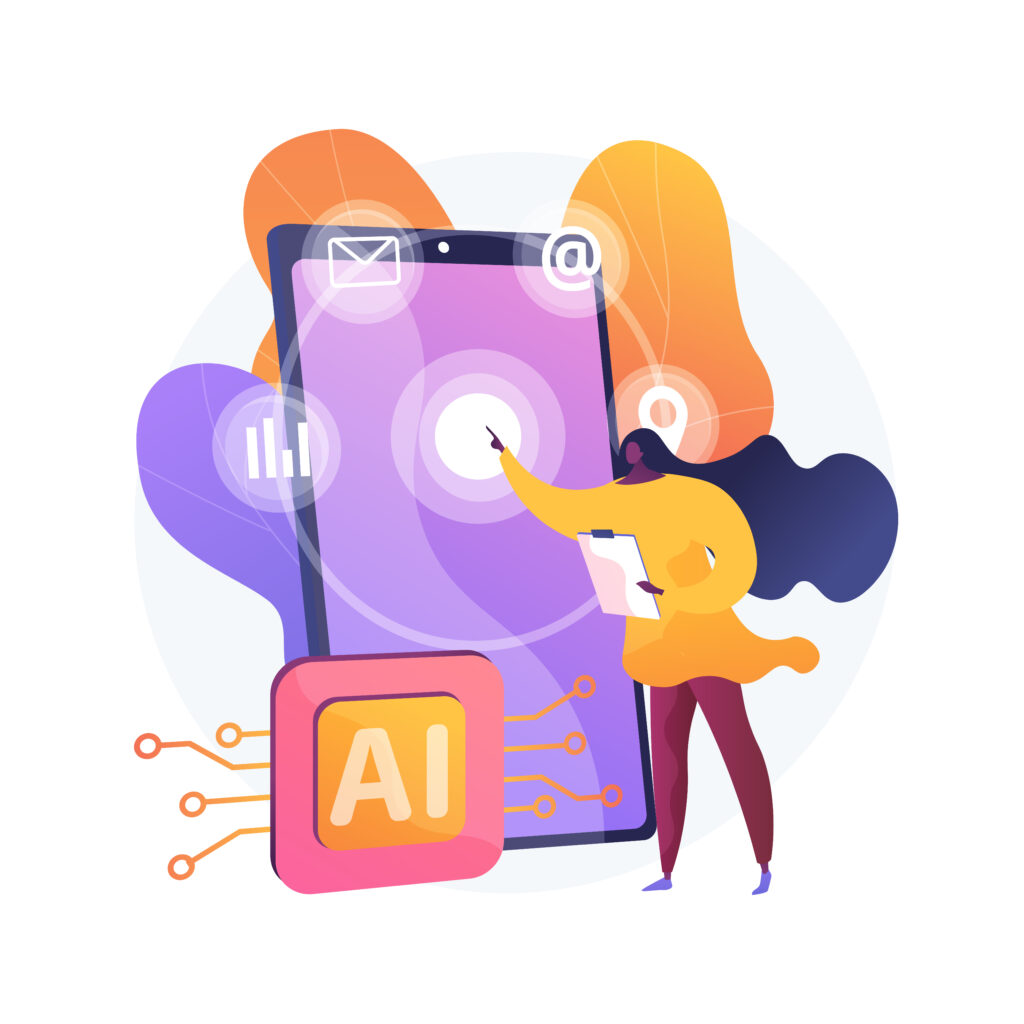
To address these challenges, businesses are leveraging technology to ensure consistent and reliable customer service. Artificial intelligence (AI) is at the forefront of this transformation, enhancing customer interactions and providing round-the-clock support.
By integrating AI into customer service, companies are not only improving engagement but also strengthening customer loyalty and building brand recognition.
How Does AI Transform Customer Service?
- Significant Cost Reductions
AI-powered solutions automate routine tasks, allowing agents to focus on complex issues. This reduces the need for a large workforce and improves efficiency. Chatbots alone could save businesses over $8 billion annually in operational costs. These savings can be reinvested into improving customer experience.
- AI Enhances Reliability
AI ensures consistent, adaptable service, meeting evolving customer expectations. Chatbots eliminate typical barriers in human-led interactions, offering a seamless experience and unmatched reliability.
- AI Ensures Precision
AI reduces errors, operating based on set criteria and delivering precise, high-quality service. This leads to faster resolutions, reduced mistakes, and minimal Average Handling Time (AHT), enhancing customer satisfaction.
- AI Facilitates Personalization
AI analyzes customer data to recommend personalized products or services. By creating customer personas, businesses can understand buying behaviors and deliver relevant content, boosting engagement, loyalty, and overall experience
How AI Agents Elevate Customer Experience (CX)
- 24/7 Availability
AI agents work continuously, providing assistance to customers at any hour, no matter the time zone or holidays, ensuring that help is always accessible.
- Instant Response Times
AI agents respond immediately, eliminating delays and preventing frustration for customers by providing quick solutions.
- Multilingual Capabilities
AI agents can communicate in multiple languages, allowing businesses to offer support to a diverse, global customer base without language barriers.
- Context-Aware Interactions
By reviewing past interactions and customer data, AI agents deliver responses that are relevant and tailored to the customer’s specific situation, enhancing the experience.
- Omnichannel Support
AI agents integrate seamlessly across various platforms—such as websites, mobile apps, social media, and messaging apps—ensuring consistent and unified support across all channels.
- Scalability
During periods of high demand, AI agents can handle numerous queries at once, ensuring that service quality is maintained even when support volumes increase.
Capabilities of AI Agents in Enhancing CX
- 24/7 Availability
AI agents are always available, ensuring that customers can access assistance at any time, regardless of time zones or holidays.
- Instant Response Times
AI agents deliver immediate responses, eliminating wait times and reducing customer frustration by providing quick, effective answers.
- Multilingual Support
AI agents can communicate in multiple languages, allowing businesses to serve a global customer base and break down language barriers.
- Context-Aware Interactions
AI agents analyze past interactions and customer data to provide contextually relevant and personalized solutions, improving customer satisfaction.
- Omnichannel Support
AI agents integrate seamlessly across multiple platforms, websites, mobile apps, social media, and messaging apps ensuring consistent and continuous support across all touchpoints.
- Scalability
During peak demand periods, AI agents can handle a large volume of queries simultaneously, maintaining high service quality without compromising performance.
Applications of AI Agents in Customer Support
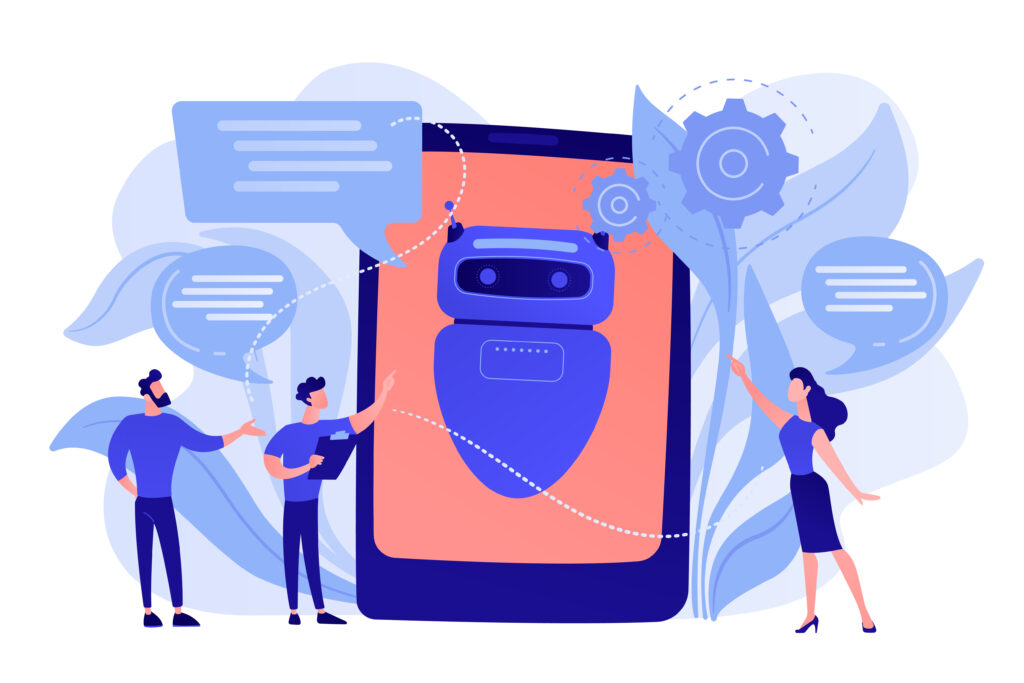
- Resolving FAQs and Routine Queries
AI agents excel at automating routine tasks such as answering frequently asked questions, checking account balances, or providing order updates. This frees up human agents to focus on more complex issues.
- Personalizing Customer Interactions
By analyzing customer data, AI agents can provide personalized recommendations, solutions, or promotions. For instance, an AI agent in an e-commerce platform might suggest products based on previous browsing or purchasing history.
- Proactive Support
AI agents can predict customer needs and offer proactive solutions. For example, a telecom AI agent might notify a customer about data usage limits and recommend a suitable plan upgrade before they encounter service interruptions.
- Complaint Resolution
AI agents manage customer complaints with empathy and efficiency. If needed, they escalate issues to human agents. By tracking metrics like resolution time and customer satisfaction, they contribute to continuous improvement.
- Sales and Upselling
AI agents enhance sales by guiding customers through product features, comparing options, and suggesting complementary items or services, effectively driving revenue.
- Feedback Collection and Analysis
AI agents gather valuable customer feedback through surveys or post-interaction follow-ups. They analyze sentiment and trends to inform business decisions and improve overall service.
[Want to learn more about AI omnichannel customer service? Click here to reach us.]
Conclusion
AI agents are transforming the customer support landscape by boosting efficiency, scalability, and personalization. They enable businesses to meet the ever-growing demands of customers while lowering operational costs. Despite existing challenges, continuous advancements in AI technology unlock immense potential for innovation and growth in customer support.
As AI agents become more prevalent, businesses must maintain a balance between automation and human interaction. This ensures that customers receive not only fast and efficient service but also empathetic and meaningful support. In the era of digital transformation, AI agents are invaluable partners in delivering exceptional customer experiences.







0 Comments